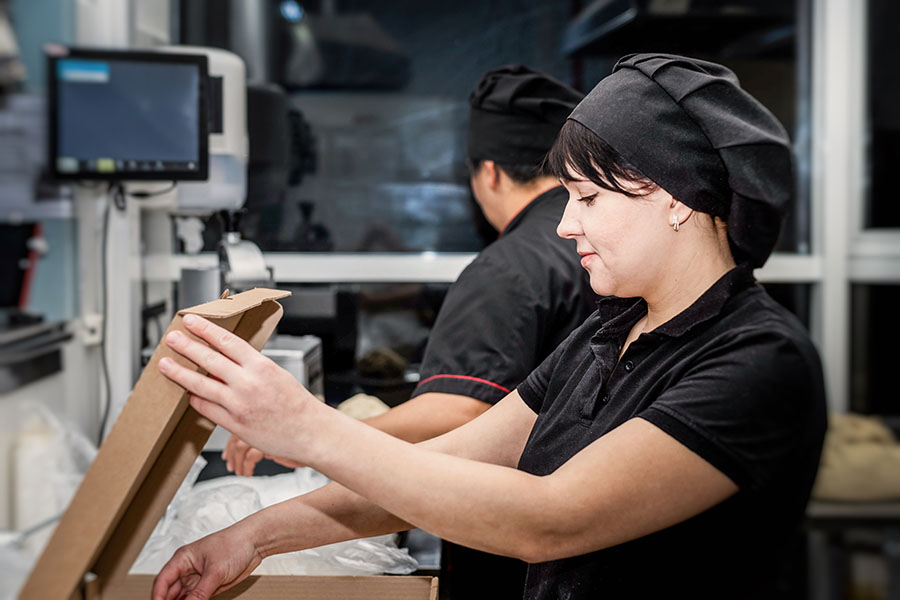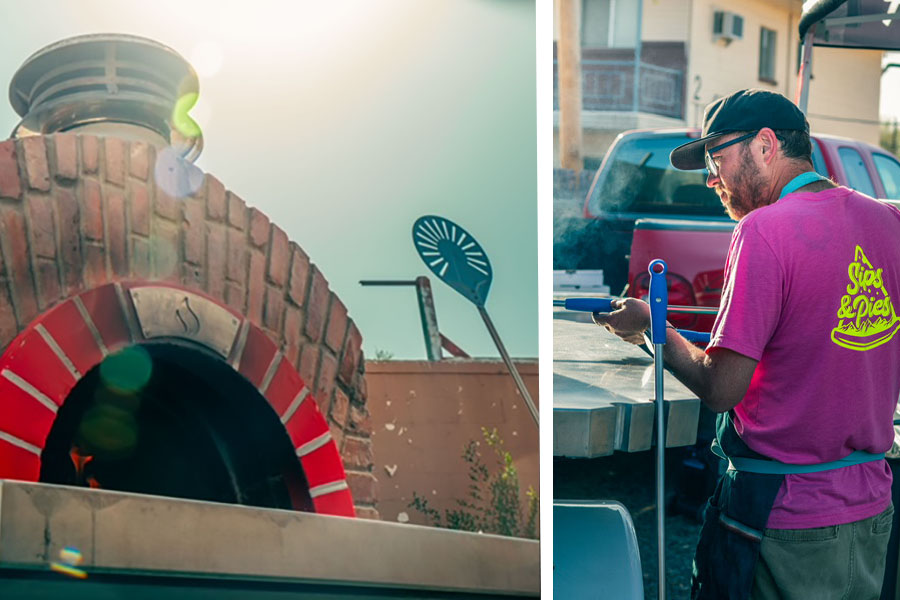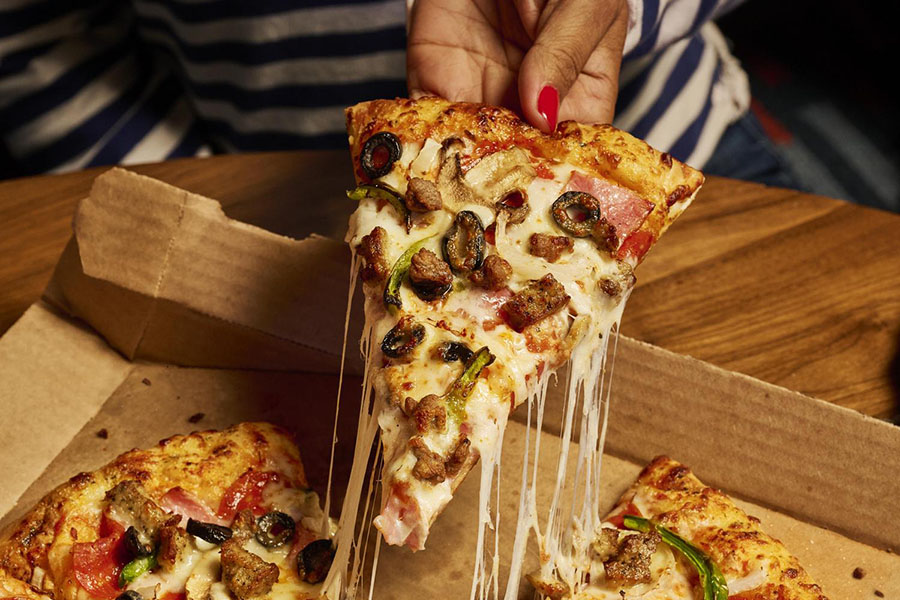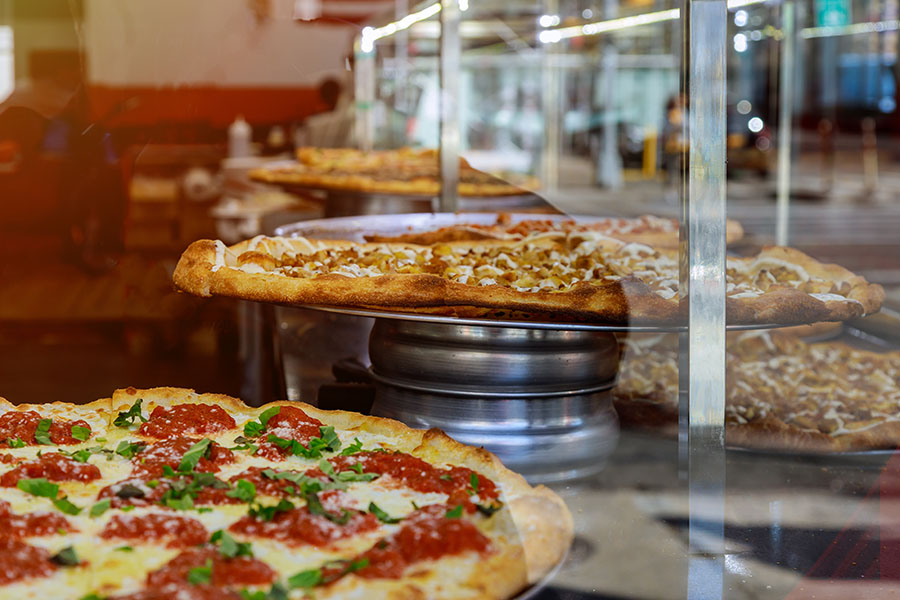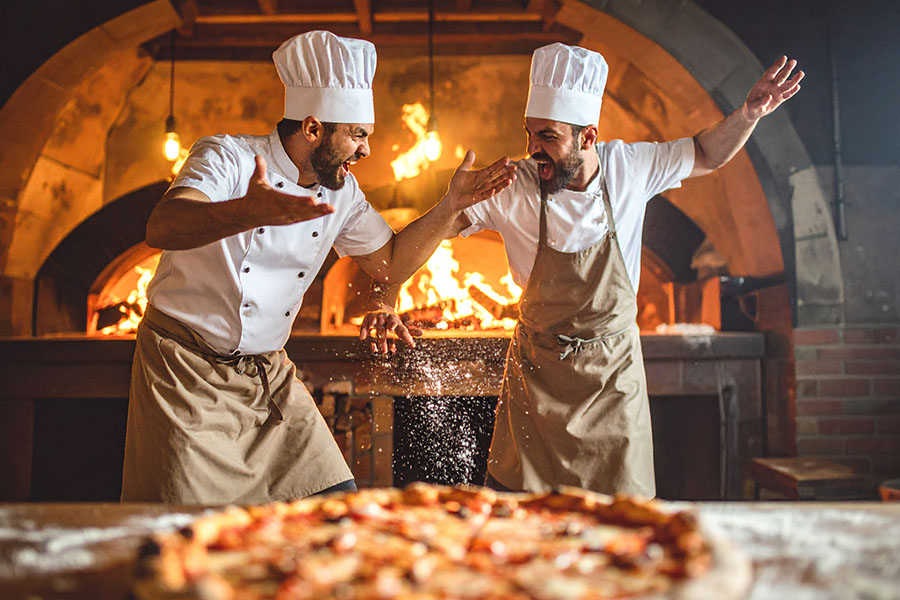Finding sound advice
 Pizzeria operators invest their bodies and souls into their restaurants; but, whether they’re newbies or veterans in the pizzeria business, there are times when finding trustworthy outside help and advice is warranted.
Pizzeria operators invest their bodies and souls into their restaurants; but, whether they’re newbies or veterans in the pizzeria business, there are times when finding trustworthy outside help and advice is warranted.
For Mike Monteleone, owner of two Barone’s Pizzeria locations in the Los Angeles area, opening a fast-casual pizzeria on top of his existing family-style concept led him to seek a consultant’s advice. Monteleone hired a consultant after an initial meeting at an expo along with recommendations from peers, followed by an interview.
The consultant assisted with many aspects of the new operation, including finding a location, choosing equipment, changing the layout of the kitchen to support high volume and assisting with the soft opening.
“We got off the ground quickly and did over a million dollars in sales our first year,” explains Monteleone.
He credits this success to his consultant’s advice.
“He knew (what to do) up front so we didn’t have to experiment,” says Monteleone.
Other issues also point operators in a consultant’s direction.
A consultant should be hired “when (restaurateurs) think they’re doing everything right, but they’re still not getting customers through the door or they’re getting customers through the door and they’re not making a profit,” says business expert Christine Corelli.
For Big Dave Ostrander, “The Pizza Doctor” and former restaurateur, operators come for a second opinion, to avert financial crisis or for help with their new start up.
Operators ask him questions like:
- Do you have recipes?
- Can we create a Muslim Halal menu?
- What’s the best way to pay a pizza delivery driver?
- Can you give me some suggestions on compensation programs for managers?
Before seeking help, global restaurant consultant Aaron Allen suggests restaurateurs pinpoint their restaurants’ needs.
 “The more clearly that they can define what it is (restaurateurs) need help with, the quicker it is for them to determine if they’ve got the right fit with consultants,” says Allen.
“The more clearly that they can define what it is (restaurateurs) need help with, the quicker it is for them to determine if they’ve got the right fit with consultants,” says Allen.
To hone in on specifics, Allen often asks restaurateurs questions including: “What keeps you awake at night? What are you afraid of? What’s giving you anxiety?” says Allen. “Then, also in terms of opportunity: What are you excited about? Where do you see the potential of the company headed?”
Then, he recommends restaurateurs ensure that the consultant’s capabilities and core specializations match these needs.
Paying two to three consultants at once to perform a small scope of work for a test run is also a strategy Allen advocates in the hunt for a consultant. Pay structures vary. Some charge a daily rate; others by the job, for a pre-specified amount of time or a flat price per hour.
Afterwards, continue to evaluate other qualities of an organization to secure a trustworthy consultant.
Look for someone who will keep your information confidential, says Allen. For instance, to maintain confidentiality at Allen’s company, Aaron Allen & Associates, they don’t publish portfolios, client case studies or profiles.
“We find that the relationship between consultant and company requires a lot of trust and sharing a lot of very confidential information,” says Allen. “So if it’s going to feel uncomfortable to do that, you’re not going to be able to get the best results from that consultant.”
Also, Corelli recommends you choose someone who listens attentively, appears to be genuinely concerned about your operation and asks you a lot of great questions. They should also be interested in every detail of your restaurant and appear excited to work with you.
“They say: I really think I can help you, or I know I can help you, but they’re not really aggressive about it and they don’t over promise,” Corelli says.
Checking a consultant’s background along with their references is also essential. If you can’t call a consultant’s past clients, Corelli recommends asking to view their Web sites to ensure they’re really impressive and seek out five good references.
“Of course, we also have to keep in mind that no one –– no consultant, speaker, or service provider –– is going to give you the name of someone who doesn’t like them, but you still have to check references and ask really good questions (like): ‘Did you see bottom line results?’, ‘How long did it take?’, ‘Did you see a big difference within eight weeks?’, ‘What happened?’,” says Corelli.
After you’ve hired your consultant, take a few extra steps to ensure you’ll work together optimally.
When speaking with your consultant, Corelli recommends always preparing a list of questions so you don’t forget to ask everything that’s been on your mind.
Don’t be afraid to ask your consultant if they’d be willing to work with you at unconventional hours –– for example, early in the morning –– if you’re concerned you may not be able to fit them into your 12-hour days.
Further, expect to provide your consultant with preliminary materials before a visit like blueprints, floor plans, menu, last year’s end-of-year profit and loss statements or balance sheets.
“There are many ways to fix an issue. I have to (find) the right one for the right location, for the right kitchen,” says Ostrander.
Signals you should seek alternate advice
If you’re experiencing issues with your consultant, Dave Ostrander recommends chatting with them first to determine whether the problems are stemming from a miscommunication or misunderstanding. Also, ensure you’re doing everything your consultant has advised.
In addition, watch for these signs that you may not be entrusting your pizzeria to the right consultant:
- They make statements like: “Work with me for six months and I’ll tell you what: I will turn your business around,” says Christine Corelli. For Corelli, this demonstrates ego; not the class and professionalism you want to see in a consultant.
- They list being an employee as their experience. Look for a professional with consulting experience.
- “If they haven’t been there and done that, that’s a big red flag,” says Ostrander. He recommends looking for someone who’s been in the kitchen and has the burn marks to prove it.
Carimé Lane is a freelance writer who writes about health and the restaurant business from Vancouver, B.C.

